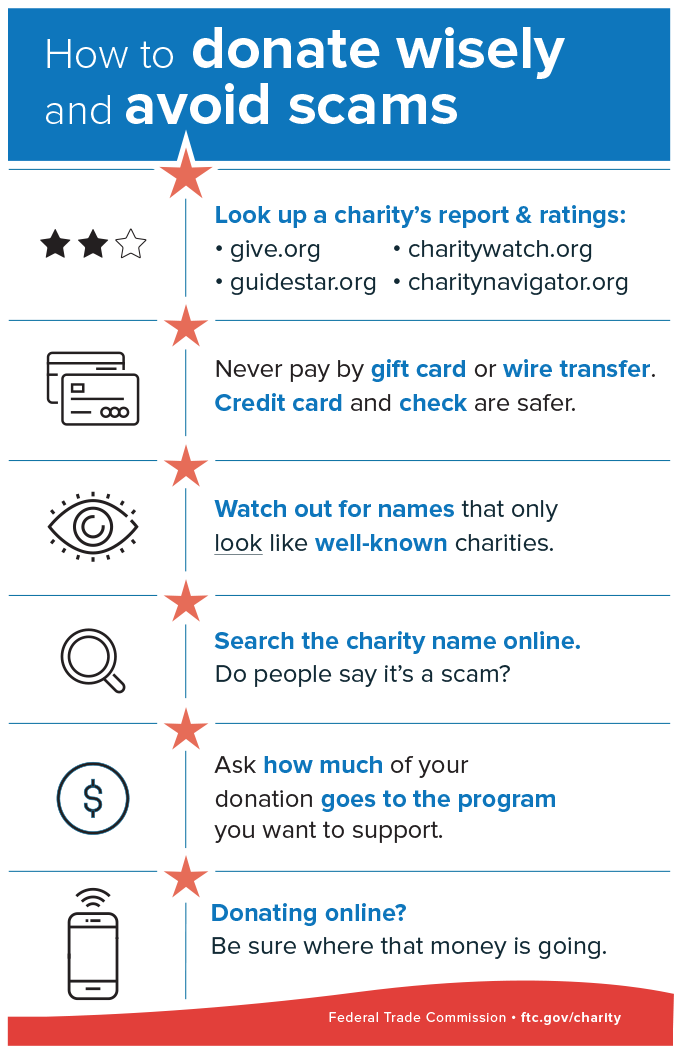Today is the start of International Charity Fraud Awareness Week (ICFAW), a coordinated international effort to help charities and donors avoid charity fraud. The FTC joins state charities regulators across the country, the National Association of State Charities Officials (NASCO), and international partners in this campaign. By joining forces, we can reach more people and more charities with information and advice. Money lost to bogus charities and scammers means less donations to help those in need. And no one wants that, either here or abroad.
The FTC’s education and outreach efforts in this area are in full force all year, but ICFAW is another opportunity to remind people how to spot scammers’ tricks and avoid donating to sham charities. There are tips at FTC.gov/Charity to help you, including how to research charities and check out their ratings with groups like the Wise Giving Alliance, Charity Navigator, Charity Watch, and Guide Star.
This year, in addition to giving donor tips, we’re alerting charities about how to prevent cyber threats that can compromise their networks and computers. The tools at FTC.gov/Cybersecurity (fact-sheets, quizzes and videos) on topics like ransomware, phishing, business email imposters, hiring a web host, and more will help organizations make sure that they’re protecting their data and donors’ information.
Don’t know where to start? Start with the basics:
• Set up software to update automatically
• Secure your files by making a back-up offline
• Require passwords for all devices
• Use multi-factor authentication (like a PIN or key)
• Encrypt devices
Go to FTC.gov/Cybersecurity for more. All the information is also available in Spanish at FTC.gov/Ciberseguridad.

In reply to I’ve noticed on FB that a lot by freedayz